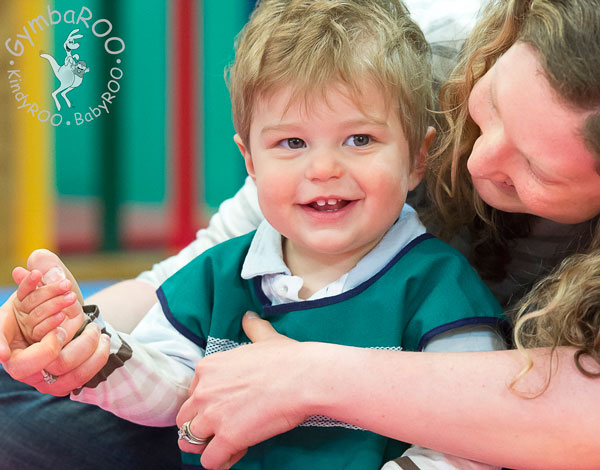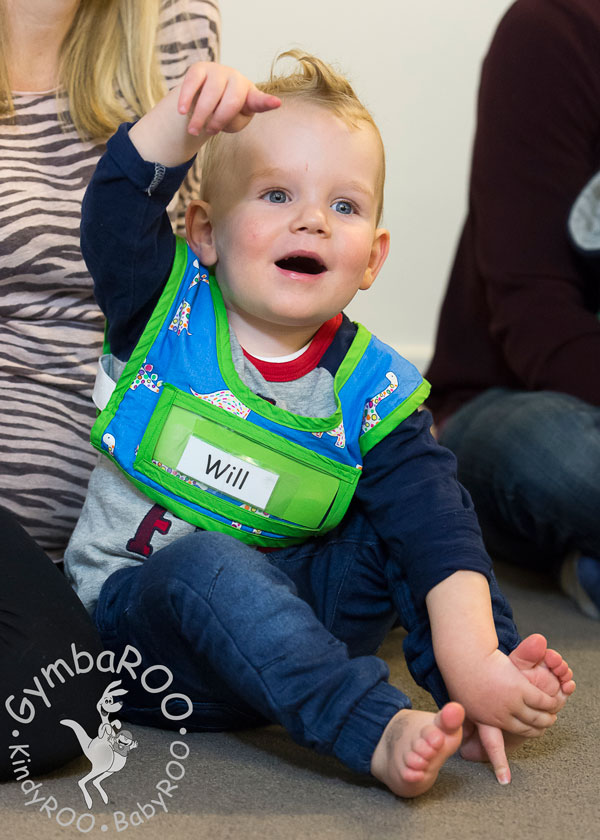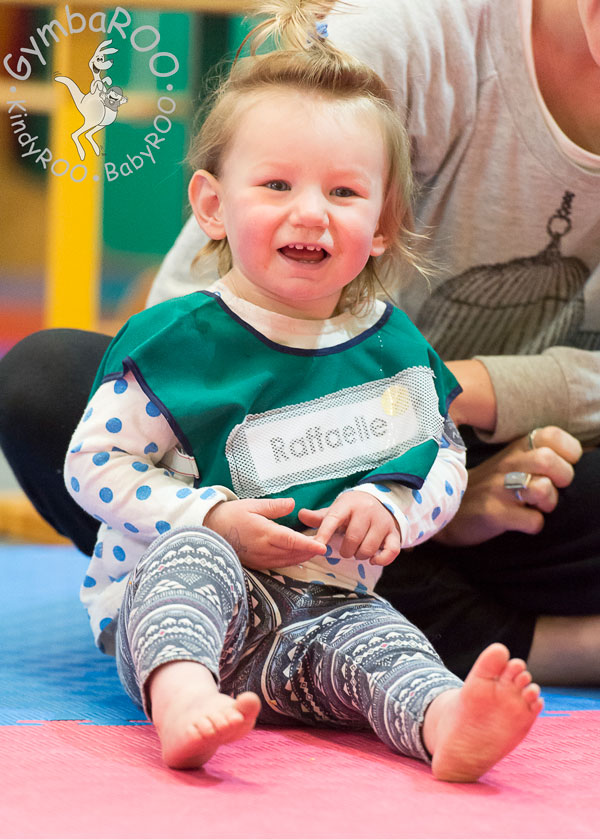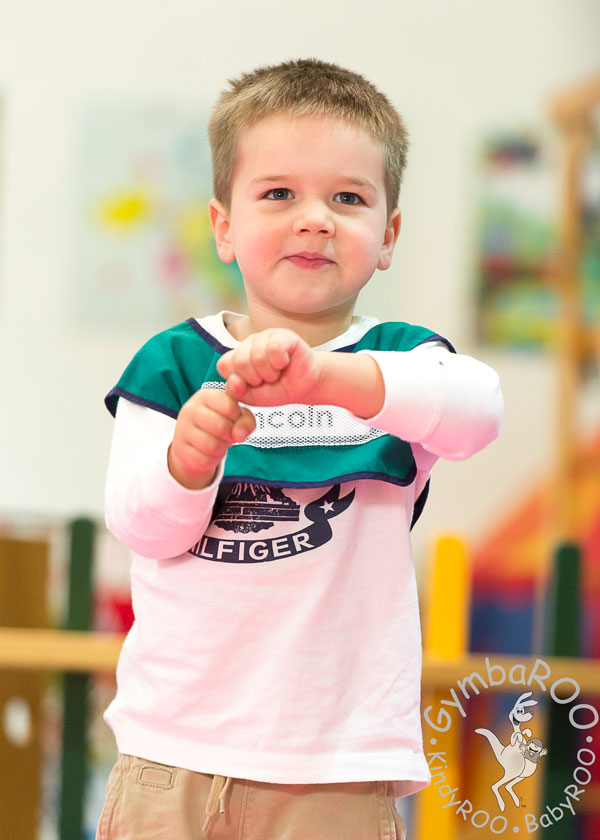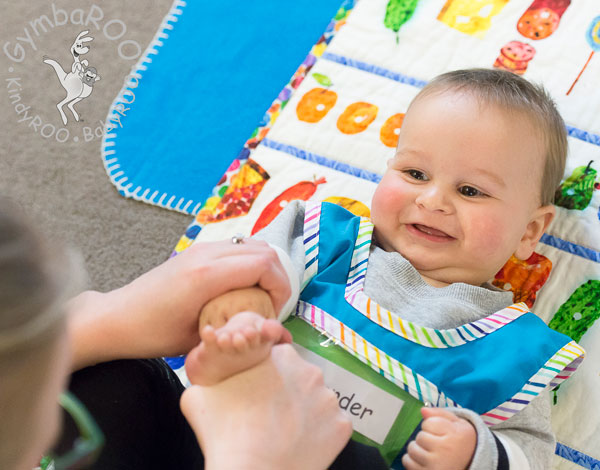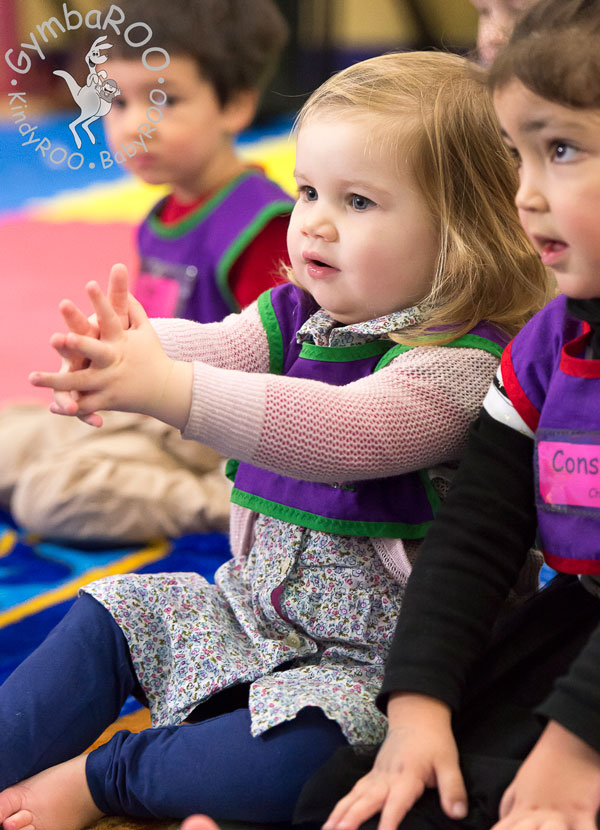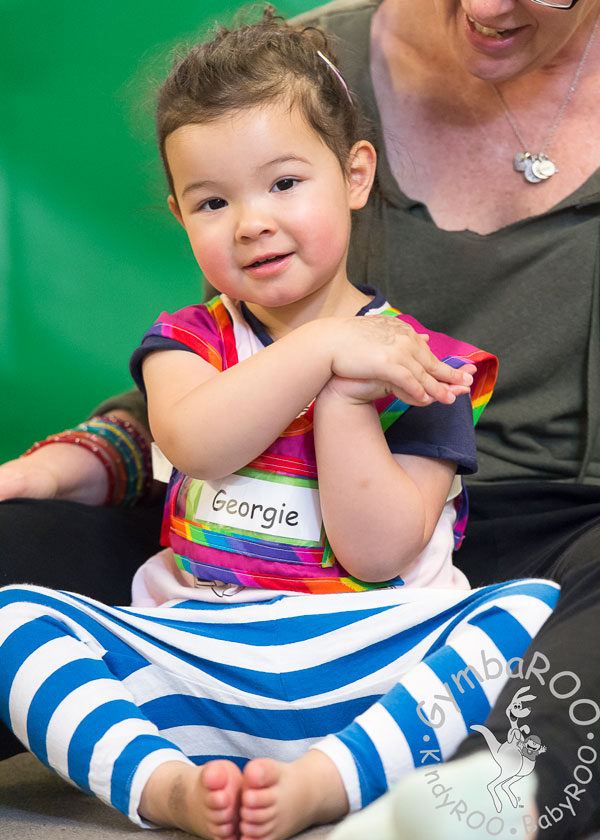Join the thousands of parents already raising smarter, happier babies with our online baby classes: The Active Babies Smart Kids series. Click here.
GymbaROO-KindyROO kids are excelling academically, emotionally, in leadership roles and on the sporting field. Find us at: GymbaROO-KindyROO
Fingerplays, footplays and action rhymes are simple, fun and all children love them – from the smallest of babies to the school-age child. However, did you realise just how many educational benefits they provide? These games offer children multisensory learning experiences that help to build solid foundations for learning.
What are fingerplays?
Fingerplays are short poems, verses, chants or stories that rhyme. The lyrics correspond to hand movements and pair the words with actions. Fingerplays and action rhymes have been shaped and passed down through generations by the caregivers of history; parents, grandparents and teachers. They have been used to teach counting, colours, rhyming and other language structures and also help children sharpen their memory through imitation and repetition. Examples date back to Rome in 50 A.D. and are found in North American Indian lore!1
Fingerplays and action rhymes offer a multisensory approach to learning, engaging multiple senses – visual, auditory, touch and movement. They build language and speech skills, gross and fine motor skills, coordination, body awareness, rhythmic proficiency, social skills and auditory discrimination.
Exploring rhythm and wordplay with fingerplays will introduce your child to the sounds in spoken language. This develops phonemic awareness – the ability to segment and manipulate the sounds – a key component of reading readiness. When children sing, listen and act in response to songs and fingerplays, they increase their vocabulary and develop listening and comprehension skills.2 As well, fingerplays help children practice speaking their language. Repeating phrases and words encourages the shaping of vowels and consonants in an enjoyable way.
Researchers, Hill-Clarke and Robinson, explain: “Each time children learn a chant or nursery rhyme, their reading skills grow. Each time children learn a rhythmic pattern, they strengthen their accenting and syllabication skills. Each time children learn a new song, their memorisation and comprehension skills are strengthened”2
Some fingerplays include repetition and practise of finger isolation while others encourage motor planning skills and bilateral coordination movements. These actions help to develop hand and finger strength and coordination, (necessary for a child to correctly hold and control a pencil when drawing and writing at school), and encourage body awareness, finger awareness, co-ordination of hand or foot movement, hand-eye coordination and foot-eye coordination.
The rhythmic chanting of fingerplays helps children develop a good sense of ‘the beat’. This assists the development of rhythmic proficiency when they later learn a musical instrument, or translates into expert timing skills on the sporting field when kicking moving balls, or throwing and catching.
Fingerplays and action rhymes play a part in concept development, build imagination and encourage visualisation as children act them out. Just think about some of the fingerplays you remember from your childhood and how they presented actions for night, day, under, over, up, down, rain, wind, stars, stairs, moon.
Singing and acting fingerplays is also a social activity that is enjoyable and motivating for children. When children sing and recite fingerplays and action rhymes together at GymbaROO-KindyROO with their parents, carers and friends, it helps them form connections with others, feel part of the group and encourages communication skills. They learn to listen to the story, anticipate the actions and act them together.
Babies
Babies love hand and finger rhymes where parents actively do the movements with and on their body parts – tickling their skin, wriggling their fingers and toes etc. Our online baby classes: Active Babies Smart Kids, is full of loads of lovely songs and fingerplays for babies.
- This little piggy went to market
- Round and round the garden like a teddy bear
- Incy, wincy spider
Toddlers – 2 years
Children become aware of their hands and feet before they are aware of their fingers and toes. They are unable to manipulate fingers and toes until they have learnt where their hands and feet are! So, with toddlers you need to first do songs and rhymes which involve the movement of the hands and feet as a whole, such as; clapping hands together, shaking hands, rolling hands around each other and using them to tap on other large body parts, like their knees, or tummy. Feet can be stamped, wriggled and tapped by hands. You can then introduce movement of the thumb with the hands. Don’t expect movement of the other fingers just yet, that takes quite a bit of developmental skill and usually doesn’t occur until after the child is 2 ½ years of age.
- Open shut them
- Rolly polly, rolly polly
- Twinkle twinkle
- Where is Thumpkin
2 ½ – 5 years
From 2 ½ – 3 years you can begin to introduce ‘tall man’ and ‘ring man’, and three-year-olds will begin to manage individual finger games. By the time a child is four years old, finger games come into their own. Children just love them and, with practice, most can competently manage a range of simple fingerplays and action rhymes.
- One, two, three, four, five, once I caught a fish alive
- Five little ducks
- One finger, one thumb keep moving
There are hundreds of wonderful fingerplays, footplays and action rhymes that babies, children and parents alike just love, many of which you will learn at GymbaROO-KindyROO and throughout our online series: Active Babies Smart Kids. Try to make them a part of your everyday routine and have fun whist helping your child’s development in so many ways!
Dr Robyn Floyd lectures in Early Childhood and Primary at Swinburne University of Technology
GymbaROO Images by Studio Z Photography
References: 1. Scott, L. (1983). Rhymes for learning times. Minneapolis, Minn.: T. S. Denison &Co. Inc. http://scholar.google.com/scholar_lookup?title=Rhymes%20for%20learning%20times&author=L..%20Scott&publication_year=1983 2. Hill-Clarke, K. Y., and N. R. Robinson. 2004. It’s as easy as “A-B-C” and “Do-Re-Mi”: Music, rhythm, and rhyme enhance children’s literacy skills. Young Children 59 (5): 91–95.
GymbaROO-KindyROO
Thousands of parents, babies and children are presently involved in our programs and creating rising stars. GymbaROO-KindyROO kids are excelling academically, emotionally, in leadership roles and on the sporting field. Come join all the fun and learning! “GymbaROO – The best decision I ever made for my child.” Classes from 6 weeks old – 7 years GymbaROO KindyROO
Active Babies Smart Kids – Online Baby Classes
GymbaROO-KindyROO’s online series of baby classes is taking the parenting world by storm! It is highly recommended by doctors, paediatricians, early childhood experts and the Maternal Child and Family Health Nurses Association. This series is being called: “The essential guide for parents”. Join the thousands of parents already playing with their babies from birth, in the best way for brain and body development and laying crucial foundations for future learning. What happens in the first year, not only matters, it matters a lot!
Click here: Active Babies Smart Kids online series
Try the first episode FREE: Tummy time + baby fun and development class 1
Enjoy the following GymbaROO-KindyROO articles
GymbaROO-KindyROO: Who, what, where, why and how
All about GymbaROO’s online baby classes for parents and babies: Active Babies Smart Kids
How to raise a smarter, happier baby
When will my baby / toddler become right or left handed?
Understanding tantrums – it’s all about the brain
Click here for more GymbaROO-KindyROO article choices.

